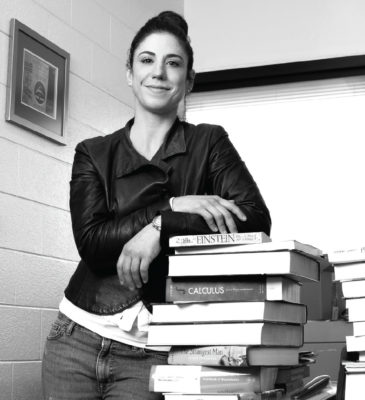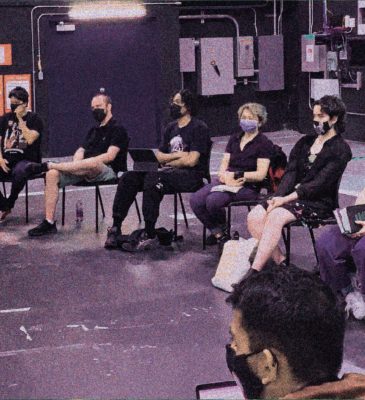
Appointments
York Appoints Jennifer Steeves as AVPR
Steeves is a professor in the Department of Psychology in the Faculty of Health; a member of the Centre for Vision Research (CVA); a core member of Vision: Science to Applications (VISTA); and a Tier I York Research Chair in Non-Invasive Visual Brain Stimulation. Prior to accepting the role of associate vice-president research, Professor Steeves served as associate dean of research and graduate education for the Faculty of Science from 2018 to 2021 and as director of the York MRI Facility.
York appoints Jennifer MacLean as AVP innovation & research partnerships
With more than 10 years in Canadian innovation, MacLean is a thought leader in industry and research partnerships, and in driving innovation for entrepreneurs and startups. Prior to accepting the role of associate vice-president research & partnerships, she was vice-president, research and innovation, of Aspire Food Group, a scaleup for low-cost, high density, ethical food-grade protein production. She has also worked in leadership roles at NGen, Canada’s advanced manufacturing supercluster; SOSCIP, an industry-academic research consortium; and Mitacs.
Funding Annoucements
Government invests $4 million in York partnership supporting Black-led organizations
Announced in August 2021, the partnership aims to support the long-term success of Black entrepreneurs and business owners in Canada. With significant investment from the federal government, the partnership will provide better access to education and opportunities to promote Black entrepreneurship. Partners include Black Creek Community Health Centre, Black Creek Community Farm, Schulich Executive Education Centre, York University-TD Community Engagement Centre and York’s entrepreneurship hub, YSpace.
York invests $3.5 million to support interdisciplinary research clusters
In December 2021, the Office of the Vice-President Research & Innovation launched the Catalyzing Interdisciplinary Research Clusters (CIRC) program to fund six proposals. The projects will advance groundbreaking research to support areas of importance, including disaster and risk governance, artificial intelligence (AI) and society, digital cultures and financial technologies.
York establishes research fund to support Black scholars
In February 2022, York announced the Black Research Seed Fund to provide funding and mentorship support for Black academics. The fund contains two streams: the Open Research Fund, which has awarded three Black scholars $25,000 each to support their research for 24 months; and the Collaborative Research Fund, which has awarded $25,000 each to three early-career Black researchers who plan to collaborate with a Black scholar on a 24-month project.
York commits $1 million over three years to support Indigenous research
York‘s Indigenous Research Seed Fund provides emerging and established Indigenous scholars with support for research that advances excellence in Indigenous knowledge, languages and ways of knowing and being. The first call for applications was administered by the University’s Indigenous Council and announced in May 2022. Ten scholars were awarded grants, receiving a total of $204,298. An additional $795,000 will be committed over three years.
York receives record levels of funding from SSHRC
In June, more than 40 research projects at York University received a combined $16 million in funding from SSHRC, including $10 million in Partnership Grants. The funding supports long-term research projects in anti-homelessness, global health, 2SLGBTQ+ poverty and Indigenous rights and reconciliation.
Research Partnerships
York formalized partnerships with a number of municipalities in the York Region. In June, the University signed a five-year MOU with the City of Markham. Under this memorandum of understanding, York and the municipality will work together to build on shared priorities. These include York’s Markham Campus and a commitment to a wide range of projects to enhance experiential learning and employment opportunities, continuing and professional development and research and innovation. York also signed an MOU with the Town of Aurora to address common goals of mobilizing new knowledge and learning experiences for “smart communities.”
YSpace announced an expansion into the northern York region with the Towns of Georgina and East Gwillimbury. The collaboration will support entrepreneurs in gaining the skills, tools and networks they need to be successful within these dynamic and rapidly growing municipalities.
Strategic Research
York announces launch of Centre for Indigenous Knowledges and Languages
This organized research unit (ORU) is the first of its kind at York. Led by inaugural Director Deborah McGregor, a York professor and Canada Research Chair in Indigenous Environmental Justice at Osgoode Hall Law School, the ORU advances Indigenous and decolonizing research.
Task Force on AI & Society launches report on future of AI at York
The report, Fostering the Future of Artificial Intelligence: Report from the York University Task Force on AI & Society, identifies AI as a key area of growth for the University. Launched in November 2021, it is the result of the task force’s work to develop ideas and examine options for building and featuring York’s research strengths in AI. Key recommendations from the report include expanding York’s faculty strength through strategic cluster hiring of researchers with interests in core technical topics; developing interdisciplinary curriculum initiatives, with new academic programs and research partnerships across York’s faculties; and establishing a University-resourced platform such as an organized research unit (ORU), to serve as a showcase to attract students, partners and donors.
York launches online training hub to support EDI in research and on search committees
A Place of Online Learning for the Adjudication of Researchers Inclusively and Supportively (POLARIS) is an online asynchronous education and learning hub to foster equity, diversity and inclusion (EDI) in the adjudication of professors in research and on search committees. POLARIS is offered through a collaboration of the Office of the Vice-President Research & Innovation; Office of the Vice-President Equity, People and Culture; and the Provost’s Office. It offers six core online modules on EDI for faculty adjudications that can be completed at their own pace.
Read more

The Biophysics of age-related visual brain diseases
Innovative technique will bring to light new treatments and diagnostics for vision-related diseases

Research for a better future
Creating positive change in areas related to decolonization; the integration of AI in healthcare; mitigating racism in classrooms; sustainable arts; and inclusive health care

Full Circle: Alum partners with Cinespace studios and creates student opportunities
Partnership will let students experience behind-the-scenes of a billion-dollar film industry

